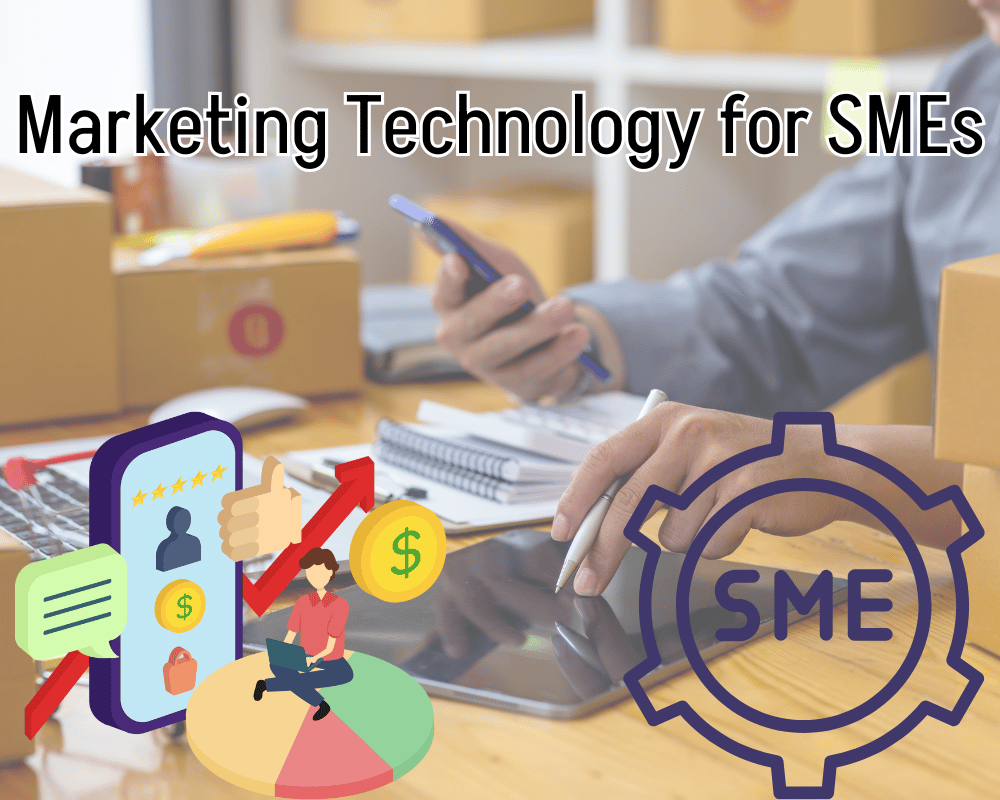
Marketing Technology for SMEs: What is SMW and How It Benefits You
Marketing Technology for SMEs: What is SMW and How It Benefits You
In today’s digital age, marketing technology for SMEs has become essential for small and medium-sized enterprises aiming to stay competitive. Understanding marketing technology can help businesses boost their marketing efforts, streamline tasks, and enhance customer engagement. Here’s an in-depth look at what SMW (Social Media Week) is, how marketing technology can enable SMEs, and why attending SMW events can be valuable.
What is Marketing Technology, and How Does it Help SMEs?
Marketing technology (or martech) encompasses tools and platforms designed to improve and optimize various marketing activities. From analytics tools to email marketing platforms, martech enables small and medium-sized enterprises (SMEs) to understand their customers better, automate routine marketing tasks, and enhance their marketing performance. For instance, marketing technology for SMEs may include customer relationship management (CRM) systems that allow SMEs to personalize communication and build stronger relationships with clients.
SMW and its Role for SMEs: Social Media Week (SMW) is a global conference dedicated to exploring the latest trends and advancements in social media and marketing technology. Attending SMW offers SMEs the chance to learn about marketing technology, understand key market trends, and gain insights into using marketing tools and platforms to improve their marketing strategies.
Benefits of Marketing Technology in SMEs
Marketing technology for SMEs brings various advantages that help businesses grow and compete with larger companies. Here’s how martech can specifically enhance marketing efforts for small and medium-sized enterprises:
- Automation and Efficiency
Marketing technology allows SMEs to streamline repetitive tasks, such as managing email campaigns and tracking customer interactions. By implementing marketing automation tools, SMEs can save time and focus on more critical marketing initiatives. Automating tasks like email marketing and social media scheduling enables SMEs to optimize their marketing efforts while reducing workload. - Personalization and Customer Insights
Martech tools, including analytics tools and CRM systems, provide valuable insights into customer behavior. By analyzing data, SMEs can develop data-driven marketing strategies, personalizing content and enhancing customer engagement across channels. Tools like Google Analytics and Salesforce help businesses measure their marketing impact, optimize their marketing performance, and make informed decisions. - Enhanced Marketing Strategies
Marketing technology for SMEs allows businesses to enhance their marketing strategies by delivering targeted and timely campaigns. Advanced marketing tools and email marketing platforms enable SMEs to reach their target audience more effectively. By exploring marketing technology, SMEs can develop strategies that align with current marketing trends, boosting their marketing goals and improving their brand’s visibility. - Competitive Edge
The rise of marketing technology empowers SMEs to compete with larger firms. With access to tools like marketing automation and customer relationship management, SMEs can create effective marketing strategies that were once available only to big brands. Understanding and leveraging marketing technology is critical for SMEs aiming to stay relevant and successful in a competitive market.
Key Components of Marketing Technology for SMEs
A well-rounded martech stack, or collection of marketing technology tools, can help SMEs improve their marketing activities more efficiently. Here are some key components that SMEs should consider:
- Customer Relationship Management (CRM): Allows SMEs to manage customer data, personalize outreach, and build lasting relationships.
- Marketing Automation Tools: Help businesses automate tasks, such as email marketing and content marketing, enabling efficient marketing initiatives.
- Analytics Tools: Essential for measuring marketing performance, providing insights that allow SMEs to make informed decisions and optimize their strategies.
- Content Marketing Platforms: Enable SMEs to develop and share valuable content across digital marketing channels, enhancing brand authority and customer engagement.
By understanding these key marketing components, SMEs can choose the right marketing technology tools to enhance their marketing efforts and achieve their goals.
How SMW Keeps SMEs Ahead in Digital Marketing
Social Media Week (SMW) offers SMEs a unique opportunity to keep up with the latest marketing technology trends and network with industry leaders. Attending SMW events can enable SMEs to explore new marketing platforms, understand the future of marketing technology, and learn best practices for integrating martech into their strategies. SMW keeps SMEs informed about advanced marketing tools and the challenges of marketing technology, ensuring they are prepared to leverage these resources effectively.
Implementing Marketing Technology to Compete with Larger Brands
Marketing technology allows SMEs to compete with larger firms by providing tools for automated marketing, analytics, and customer engagement. With various marketing technologies, SMEs can implement strategies tailored to their unique needs, such as digital marketing campaigns and email marketing. By leveraging marketing technology, SMEs often find ways to streamline their marketing efforts, optimize their marketing channels, and meet customer expectations.
Examples of Marketing Technology in Action for SMEs
- Digital Marketing and Social Media Tools: These tools allow SMEs to create, schedule, and monitor social media posts, making it easier to reach a larger audience. Platforms like Hootsuite streamline digital marketing, while email marketing tools such as Mailchimp enable SMEs to run targeted email campaigns.
- Customer Relationship Management (CRM): A CRM system allows SMEs to store customer data, segment audiences, and personalize marketing messages, enhancing their marketing strategies.
- Analytics Platforms: Analytics tools help SMEs understand their customers and measure marketing success, allowing them to make data-driven adjustments to their strategies.
Challenges of Marketing Technology for SMEs
While marketing technology is beneficial, SMEs may face challenges in implementation, such as budget constraints, limited resources, and the need for technical expertise. However, by attending SMW and understanding key components of marketing technology, SMEs can overcome these challenges and improve their marketing efforts efficiently.
Conclusion: The Future of Marketing Technology for SMEs
For SMEs looking to enhance their marketing efforts and stay competitive, marketing technology is an invaluable asset. By understanding and leveraging tools like marketing automation, CRM, and analytics, SMEs can build effective marketing strategies, improve their customer relationships, and achieve sustainable growth. Attending SMW events and staying informed on the latest technology trends can further equip SMEs with the knowledge and resources needed to thrive in today’s digital marketplace.
With a solid understanding of marketing technology, SMEs can streamline their marketing activities, enhance customer engagement, and take their digital marketing to the next level. The future of marketing technology offers immense opportunities for small and medium-sized enterprises willing to embrace innovation and adapt to market changes.



